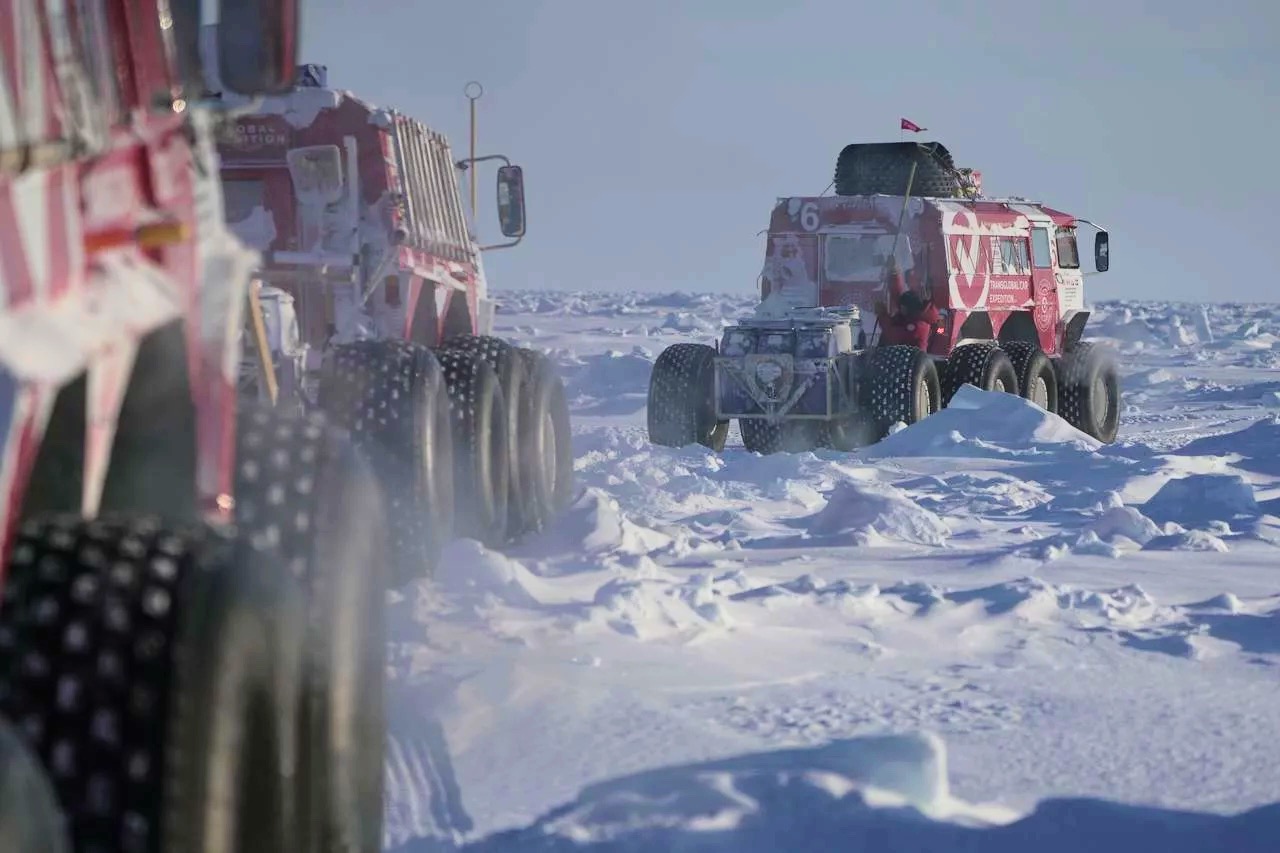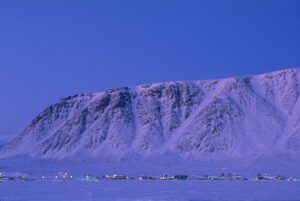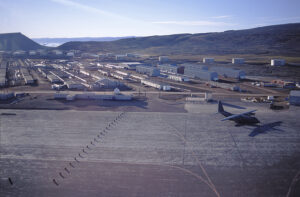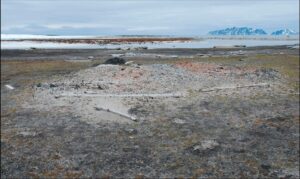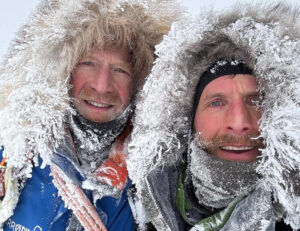A dozen explorers intent on driving special amphibious vehicles to both poles have hit a roadblock — but not before already achieving an unprecedented drive.
The Transglobal Car Expedition seeks to become “the world’s first wheeled surface circumnavigation of the Earth through both geographic poles.” As of early April, the group had already covered its planned route from New York City to the Geographic North Pole via Yellowknife, Canada.
View this post on Instagram
Driving to the North Pole is a bold, risky objective no one had completed before. They followed this up by driving from the North Pole to Greenland — another unprecedented feat.
But the group didn’t get to celebrate its success for long. On the way south to Nuuk, Greenland, they ran into authorities in Station Nord who denied them entry.
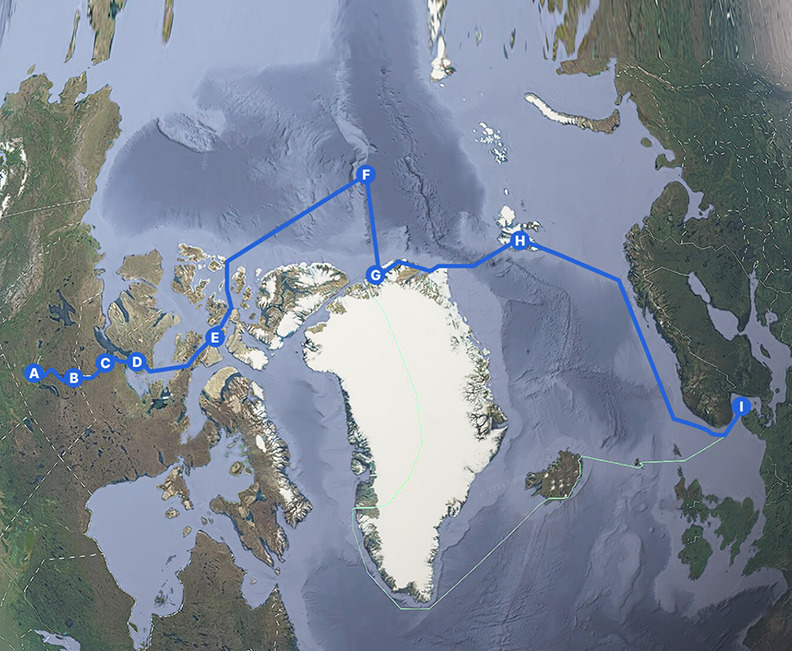
The expedition managed to get from A to G. Then their diplomatic troubles began.
Unsafe at any speed
Naalakkersuisut, Greenland’s government, reviewed the team’s credentials to enter Northeast Greenland National Park on Friday. Authorities rejected them on the basis of safety, according to a press release.
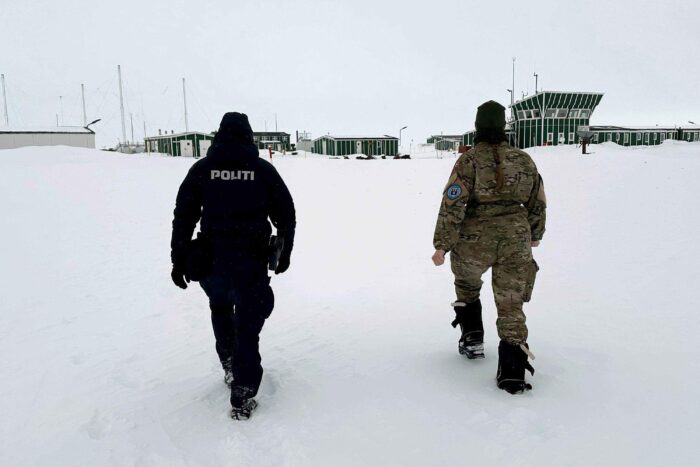
Danish authorities at Station Nord, Greenland. Photo: Gronlands Politi
“It is too dangerous both for the expedition and for the authorities who would have to rescue the expedition in an emergency situation to travel in the relevant areas in Greenland,” the release said. “Therefore, the expedition cannot legally continue through the National Park.”
The release went on to state the expedition had left Greenland. Transglobal leader Vasily Shakhnovsky, a Russian oil baron who ranks among the world’s richest men, gave details to 7 Summits Club, one of the expedition’s main advocates:
“They collected passports and conducted a full-fledged search of cars for weapons. The police insisted that we leave Greenland as soon as possible. In the end, everything was agreed. We took off safely [from Station Nord] and landed in Svalbard two hours later.”
Vehicles stuck in limbo
The expulsion from Greenland forced the team to leave its specialized vehicles behind. The six-wheel-drive machines are designed for transport in shipping containers. Transglobal’s original plan would have allowed them to ship the rigs to themselves further along the route. This would have been possible between Nuuk and Iceland, as first planned, but sea ice conditions between Station Nord and Svalbard will prevent it.
View this post on Instagram
The custom-built trucks create “less impact on the ground than a human foot” with their six 51-inch wheels that can run on pressure as low as one pound per square inch. That and their light weight help them churn through sea ice where other vehicles would founder and sink. The team aims to begin the Antarctic leg this November after the Antarctic cold has eased but when the sea ice is near its highest levels.
One expedition sponsor also lamented the setback, based on its scientific objectives. Along its 50,000km route, Transglobal plans to conduct research into sea ice, cosmic radiation, light pollution, and more. The regulatory refusal, for now, dismantles its stated plans to study the Greenland ice sheet.
View this post on Instagram
“This is really unfortunate as it is an expedition doing some ground-breaking work in collaboration with scientists from European universities and legitimate international scientific institutions such as CERN and the Italian space agency,” said Dr. Maxim Artamonov, manager of a Swiss non-profit that sponsors the expedition.
Not giving up on Greenland yet
Northeast Greenland National Park is the world’s largest national park. At 972,000 square kilometers, it covers almost half the island. The park is so remote that fewer people visit it each year than summit Mount Everest, according to Lindblad Expeditions. Permitting is also famously strict.
It’s the latest episode in a saga of minor calamities and regulatory hassles for the Transglobal Car Expedition team. A Ford F-150 customized by Iceland’s Arctic Trucks and owned by Transglobal sank in arctic waters during testing in 2022. The expedition itself has demanded challenging repairs and toilsome navigation.
View this post on Instagram
Several team members have also struggled with credentials along the way. Vasily Yelagin, a Russian mountaineer who designed the amphibious vehicles, had trouble obtaining a Danish visa, arctic correspondent Galya Morrell reported. And Canadian authorities denied entry to Alexander Abramov, president of the 7 Summits Club, who was on board from New York to the Canadian border. 7 Summits said officials revoked Abramov’s “valid visa right at the border without reason.”
After the team regroups in Svalbard, it faces the adventure’s longest but easiest leg: a five-month tour crisscrossing Europe.
And Shakhnovsky and Co. haven’t given up on Greenland yet. In a statement, Transglobal said it is “hopeful” that discussions with Greenland authorities will allow future access to its original north-to-south overland route.
